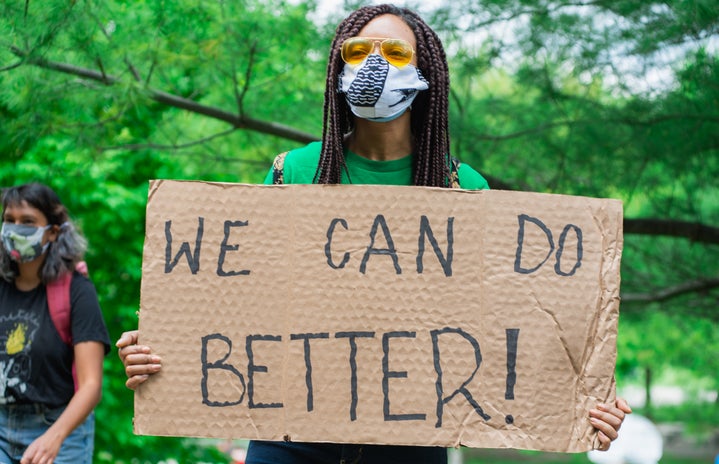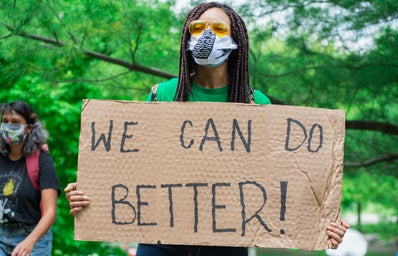Sustainability is defined as “the ability to be maintained at a specific rate or level.” More specifically, for our purposes, sustainability is the “avoidance of the depletion of natural resources to maintain an ecological balance.”
I’m sure that practicing sustainability may not be at the forefront of your mind right now, especially with how much tumult is going on in today’s society. But I think it’s still important to try your best to make sure that you’re living an eco-friendly lifestyle.
- What’s the issue?
-
When it comes to environmental issues, a few of the most significant concerns include: different types of pollution (such as air, water, land, and soil), climate change, deforestation, and the disastrous impacts of the increased carbon footprint. All of these haven’t gone away during the pandemic — which is why we must continue to do our part in the effort for sustainability.
The “stay-at-home” orders that many countries mandated purportedly decreased the air pollution compared to before the pandemic. Sadly, this decrease was not paralleled by other ecological concerns. For example, there has been an increase in waste and garbage, as well as a reduction in recycling in part due to all of the online shopping that has been conducted in the past few months.
- What does it mean for my life?
-
Luckily, I don’t think that there’s much to being eco-friendly other than taking a couple of minutes out of your day to evaluate what you’re doing and what you could be doing. You don’t need to change your whole lifestyle; rather, a few simple habits could positively impact our environment. Being more aware and conscious of the products that you’re using, and the actions that you’re taking with said products, will help you live a better, more sustainable lifestyle.
- What do you need?
-
This leads to my first bit of advice. If you take a minute and figure out precisely what you need — and what you don’t need — you can reduce a lot of what you’re using. Following this model, you will also be able to reduce, reuse, and recycle — which is one of my most important points in writing this article. It doesn’t have to take that long — instead of throwing away newspapers or unwanted flyers, recycle them. Instead of repeatedly purchasing things separately on Amazon, try and make bulk orders; this will allow you to reduce packaging waste. Instead of buying plastic water bottles, opt for a reusable bottle. Simply put, try to reduce, reuse, and recycle as much as you can.
- What should I do?
-
Next, figure out what you should do. While this idea seems vague, it’s another one that is critical to changing your lifestyle. You need to figure out what you can recycle, and what you can try to find an eco-friendly alternative for — or maybe even eliminate from your daily routine. Like I said before, you don’t need to make major changes, and it doesn’t have to be everything. At first, all you need to do is small tasks that you are comfortable with.
- Research
-
It’s always nice to do some of your own research on what’s going on and what you can do. You don’t need to go super in-depth initially. I think just taking a little bit of time and learning about the issues currently affecting the environments (simple things you can do to help and information that you didn’t know before) will help you become more eco-friendly. There are many documentaries, YouTube videos, news articles, books, and podcasts on anything and everything you need to know when it comes to sustainability. These resources will allow you to learn something new, and also make an impact.
- It’s simpler than you think
-
Don’t get overwhelmed. It’s so easy to get caught up in this idea that you need to try to change the way things are completely, and I’m here to say that you don’t need to do that. I was first introduced to the idea of sustainability after watching a documentary about people living a zero-waste lifestyle. Before this, I had no idea what zero-waste was, and I was shocked that people could live such a minimalistic lifestyle. I was intrigued by the idea, but I was definitely in over my head. In my mind, I was thinking there’s no point in trying because it’s way too hard. A couple of months flew by, and I saw another YouTube video about how someone got into the zero-waste lifestyle. The person was talking about how it took her a while to get to where she is, and all she did was change small portions of her routine. Because of the gradual change, she didn’t feel like everything was completely different. She said that she essentially created her “new normal” one step at a time. And I think that’s all it takes — just change one thing at a time, and you won’t even feel the difference.
- Small steps
-
Like I said a couple of times, what you do doesn’t have to be a huge thing — it can be just one small thing. At the end of the day, you will know that that one little thing is still making an impact in the grand scheme of things. Try to spread the word, because the more people that know, the more of an effect there will be!
Good luck, and have fun learning how to live sustainably!


